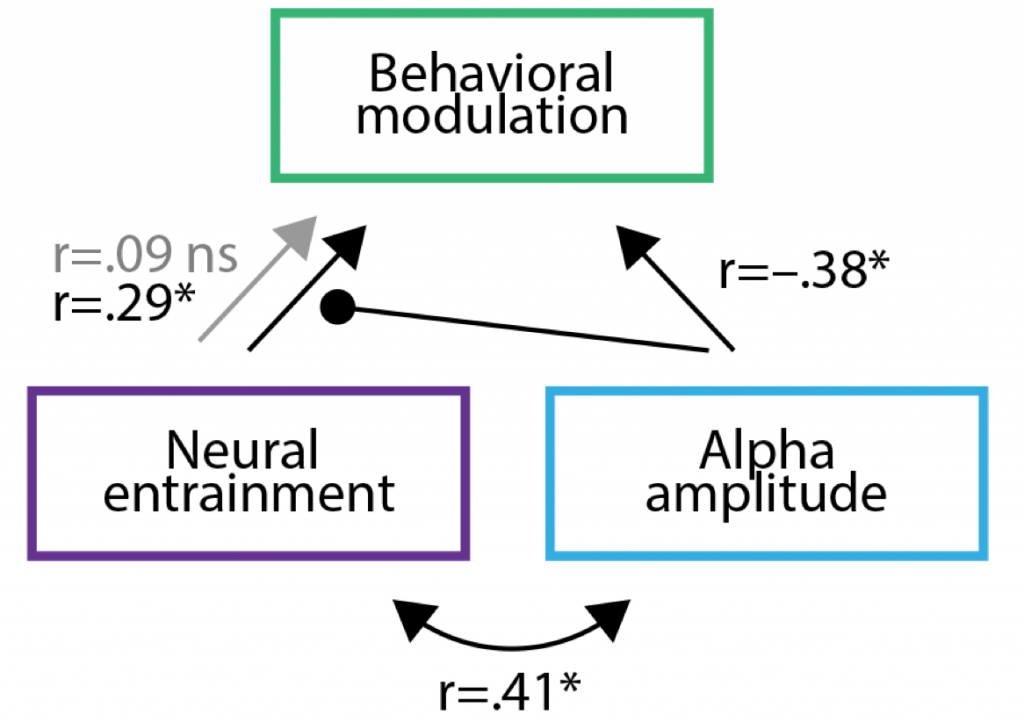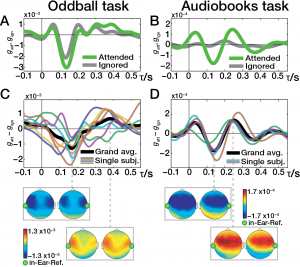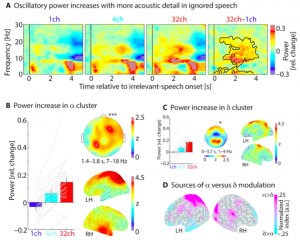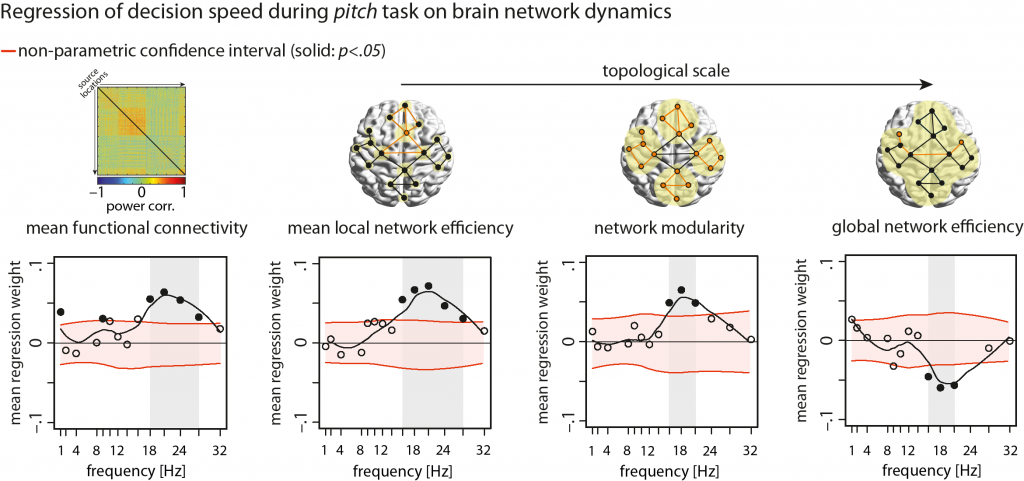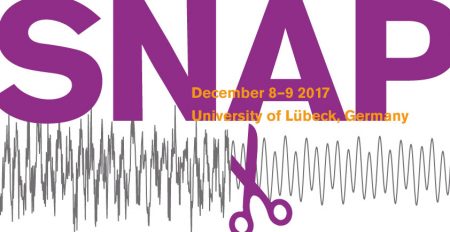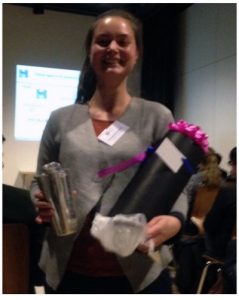Story time: Some time in early 2011, I sat down with an American, fresh PhD graduate who had just joined my new lab, in a Leipzig bar (Café Cantona; if you are interested you can find this great 24⁄7 bar with exquisite food also in the acknowledgments of, e.g., Obleser & Eisner, Trends Cogn Sci, 2009).
To the day, I could still point you to the table she and I sat down at, and the wall I faced (which is notable because we actually spent an unhealthy amount of time and money there over the years). Soon thereafter, we grabbed a beer mat and started scribbling waves and marked where we would place so-called targets (psychologist lingo) and talked a lot of gibberish about frequency modulation. I remember vididly that I had just read an insanely long review paper on neural oscillations by Wolfgang Klimesch (that, more in passing, cited old-school tales of Schmitt filters by the late great Francesco Varela or pioneers sounding like record producers, Dustman & Beck, 1965), while the young American opposite me turned out to be an—if adventurous—die-hard expert on auditory psychophysics.
Who would have thought that this very night would carry me towards tenure in three years’ time, and her around the globe as an esteemed young colleague.
When I nowadays check Google scholar, I am amazed to see that already more than 100 other papers have cited what directly grew out of that beer mat one and a half years later—not counting the many more papers this said postdoc, Molly Henry, has produced since.
Here is the link to how excited we were when the paper appeared in PNAS in 2012, and a link to the little movie a german science program kindly produced on all of this in 2013.

